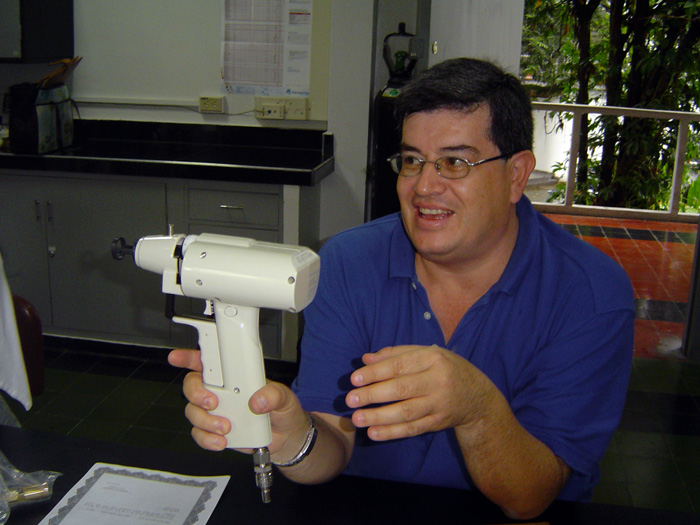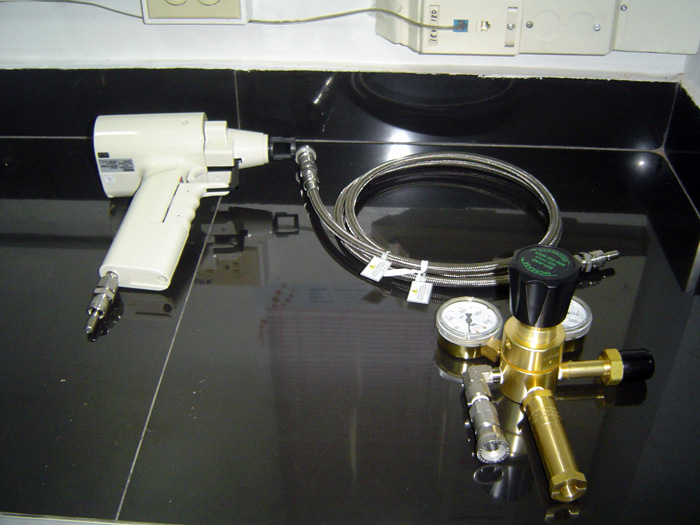With this new Helios Gen Gun System (BIORAD®), a research group will inoculate vegetable viruses transmitted by the whitefly, which are affecting vegetable crops in some regions in the country.
The new acquisition is the Helios Gen Gun System by the research group "IPMA, Interacción Planta, Microorganismos y Ambiente" in Palmira"s campus. It makes part of the project "Virus transmitted by the whitefly; molecular identification of the etiological agent and searching of resistant materials in tomatoes," which is being developed along with the Ministry of Agriculture and Rural Development and the company Defrescura S.A.
Professor Juan Carlos Vaca Vaca, the director of this project, explained this research "tries to find the diversity of geminiviruses, transmitted by the whitefly Bemisia tabaci, which are affecting tomato crops in some regions in Colombia such as Valle del Cauca, Cundinamarca, Antioquia and the Santanderes. This research is attempting to establish the molecular identity of these viruses to use them as a tool to evaluate the resistance that could be present in the tomato germplasm bank in Palmira"s campus.
The Helios Gen Gun system is a new, simple and effective hand system to perform biobalistics that will enable the research group to inoculate geminiviruses without considering the biologic vector (the whitefly), an element that is currently being used. "The disadvantage of using the biologic vector to inoculate viruses is that this strategy could add additional uncontrollable variables to the investigation that could lead to experimental results that are not reflecting the real nature of the virus-plant interaction," said the director of the investigation.
The bombardment procedure with this new gun is simple; after covering the gold particles with the viral DNA, they are accelerated and rapidly inoculated in the plants under study.
This new tool also has many advantages for in vitro transformation of animals, plants, cell crops, nematodes, bacteria, and yeast. "An advantage of this new gun is that it is portable and can be easily used in the country, it has high reproducibility and requires low manipulation of the cells" says Karina Lopez, co-investigator in the project.
This particle bombardment system can be used in different research areas such as gene expression studies, gene therapy, gene immunization, cancer biology, infectious diseases, and fluorescent neuronal tracing,
 Correo Electrónico
Correo Electrónico
 DNINFOA - SIA
DNINFOA - SIA
 Bibliotecas
Bibliotecas
 Convocatorias
Convocatorias
 Identidad UNAL
Identidad UNAL





